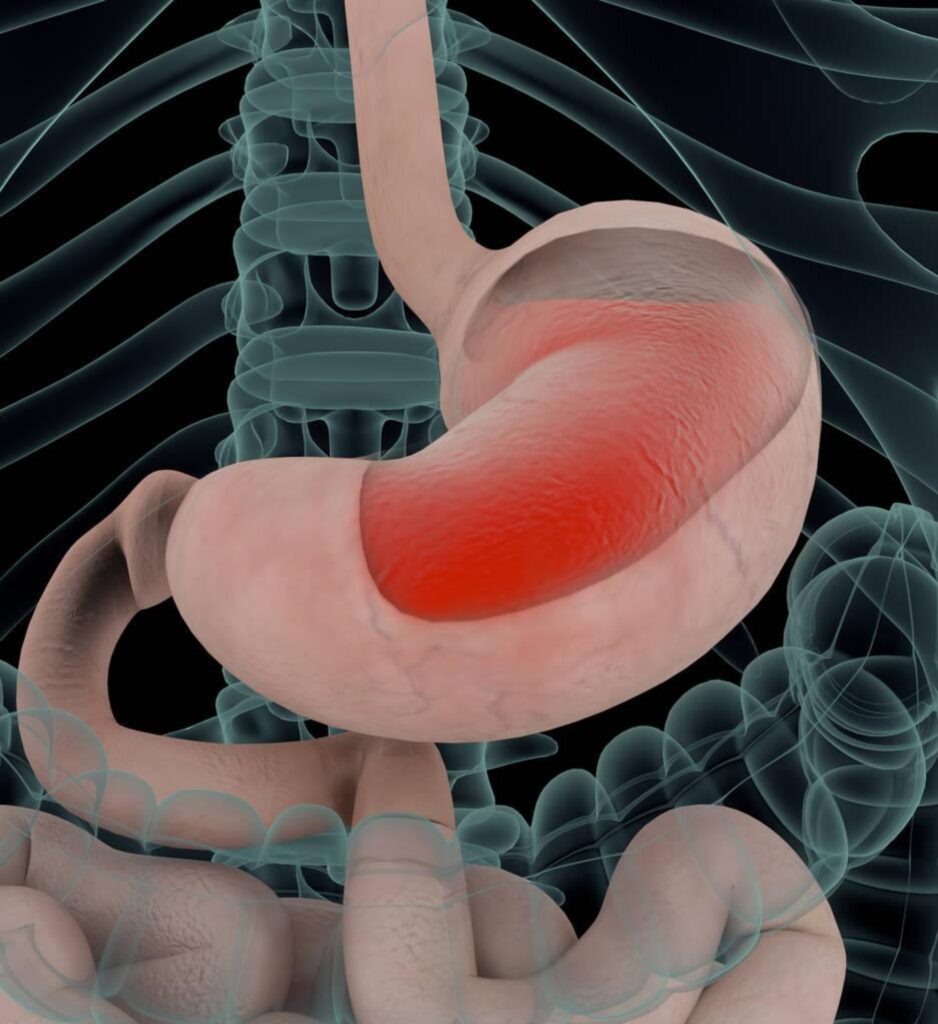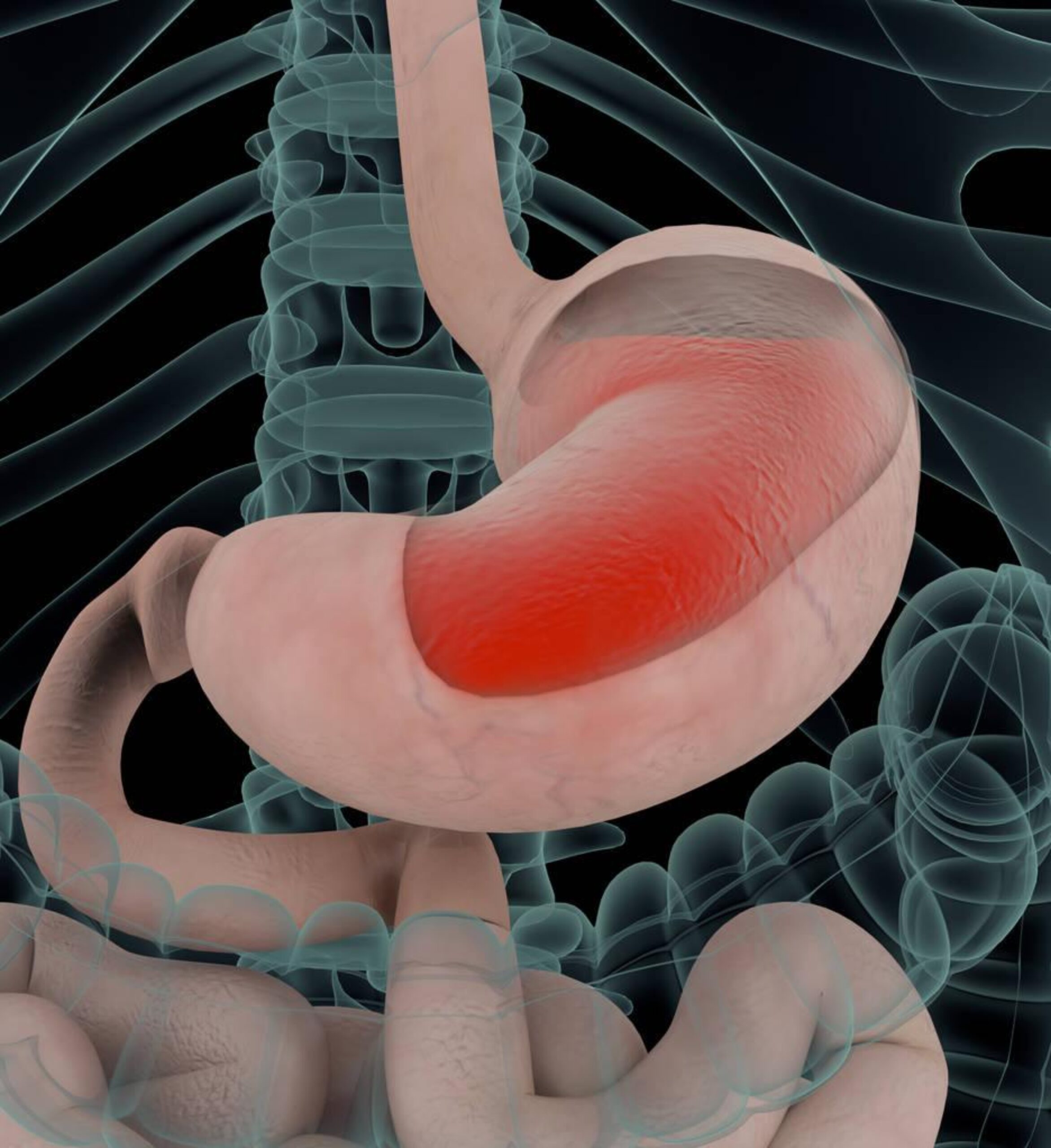Understanding how our body functions can often feel like solving a complex puzzle. One fascinating piece of this puzzle is the stomach, particularly how it deals with the potent acid that resides within it. This acid is strong enough to break down food, so why doesn’t it break down the stomach itself? Let’s dive into the intricate mechanisms that protect our stomach from its own acid.
Table of Contents

The Nature of Stomach Acid
What is Stomach Acid?
Stomach acid, primarily composed of hydrochloric acid (HCl), is an essential component of the digestive system.
Composition of Stomach Acid
Stomach acid includes not just HCl but also potassium chloride (KCl) and sodium chloride (NaCl). However, it’s the HCl that plays the most critical role.
Role of Hydrochloric Acid (HCl)
HCl is responsible for breaking down food particles, aiding in digestion, and creating an acidic environment that prevents the growth of harmful bacteria.
The pH Level of Stomach Acid
The pH level of stomach acid typically ranges between 1.5 and 3.5, making it highly acidic. This acidity is necessary for the digestive processes to work efficiently.
Functions of Stomach Acid
Digestion of Food
Stomach acid breaks down proteins and activates digestive enzymes, such as pepsin, that further digest proteins into peptides.
Defense Against Pathogens
The acidic environment of the stomach helps kill ingested pathogens, protecting the body from infections.
Protective Mechanisms of the Stomach Lining
The Mucous Barrier
One of the primary protective mechanisms of the stomach is the mucous barrier.
Composition of Mucus
This mucus is a thick, gel-like substance secreted by cells in the stomach lining. It contains glycoproteins and bicarbonate.
How Mucus Protects the Stomach Lining
The mucus forms a physical barrier that prevents the acid from directly contacting the stomach lining. This barrier is continuously renewed, ensuring ongoing protection.
Bicarbonate Secretion
Another crucial protective mechanism is bicarbonate secretion.
Role of Bicarbonate
Bicarbonate is a base that neutralizes acid. It is secreted by epithelial cells lining the stomach and forms part of the mucous barrier.
Neutralization of Acid
By neutralizing the acid, bicarbonate ensures that the environment close to the stomach lining is less acidic, preventing damage to the cells.
Epithelial Cell Renewal
The stomach lining has an impressive ability to renew itself.
Rapid Cell Turnover
The epithelial cells of the stomach lining are replaced every few days. This rapid turnover helps repair any damage caused by the acid.
Repair and Regeneration
When minor injuries occur, the stomach lining quickly repairs itself through cell regeneration, maintaining its integrity.
Role of Hormones and Nerve Signals
Gastrin and Its Effects
Gastrin is a hormone that stimulates the production of stomach acid and the growth of the stomach lining, ensuring both functions are balanced.
Role of Prostaglandins
Prostaglandins help protect the stomach lining by stimulating the secretion of mucus and bicarbonate and promoting blood flow, which is essential for cell renewal.
Nerve Signals and Stomach Protection
The nervous system regulates the secretion of stomach acid and the protective mucus, ensuring that these processes are well-coordinated.
Common Issues with Stomach Acid
Acid Reflux and GERD
When stomach acid frequently flows back into the esophagus, it causes acid reflux, which can lead to gastroesophageal reflux disease (GERD). This condition can damage the esophagus but does not affect the stomach lining itself.
Peptic Ulcers
Peptic ulcers are open sores that develop on the lining of the stomach or the upper part of the small intestine. They occur when the protective mechanisms fail, allowing acid to damage the lining.
Gastritis
Gastritis is the inflammation of the stomach lining, often caused by infections, excessive alcohol consumption, or prolonged use of NSAIDs. It can lead to reduced mucus production, making the stomach more susceptible to acid damage.
Factors Affecting Stomach Protection
Diet and Lifestyle
Spicy foods, alcohol, and smoking can impair the stomach’s protective mechanisms. A balanced diet and healthy lifestyle can support stomach health.
Medications
Certain medications, like NSAIDs, can reduce mucus production and bicarbonate secretion, increasing the risk of ulcers and gastritis.
Stress and Its Impact
Chronic stress can affect hormone levels and blood flow to the stomach, potentially weakening its protective barriers and leading to conditions like ulcers.
Conclusion
The stomach is a marvel of biological engineering, equipped with multiple protective mechanisms to prevent its own acid from causing harm. From the mucous barrier and bicarbonate secretion to rapid cell renewal and hormonal regulation, these defenses work in harmony to maintain stomach health. Understanding these processes underscores the importance of maintaining a healthy lifestyle and seeking medical advice when issues arise.
FAQs
What foods can help protect the stomach lining?
Foods rich in fiber, lean proteins, and probiotics can help maintain a healthy stomach lining. Examples include fruits, vegetables, whole grains, yogurt, and lean meats.
How can I tell if I have too much stomach acid?
Symptoms of excess stomach acid include heartburn, indigestion, and frequent burping. If you experience these symptoms regularly, it’s best to consult a healthcare provider.
Are there natural ways to improve stomach protection?
Yes, natural ways to enhance stomach protection include eating a balanced diet, reducing stress, avoiding excessive alcohol and smoking, and consuming foods with probiotics.
What are the signs of a peptic ulcer?
Signs of a peptic ulcer include burning stomach pain, bloating, heartburn, nausea, and in severe cases, vomiting blood or having black stools. If you experience these symptoms, seek medical attention promptly.
Can stress really affect my stomach health?
Absolutely. Stress can impact stomach health by altering hormone levels and reducing blood flow to the stomach, which can impair its protective mechanisms and lead to conditions like ulcers.




